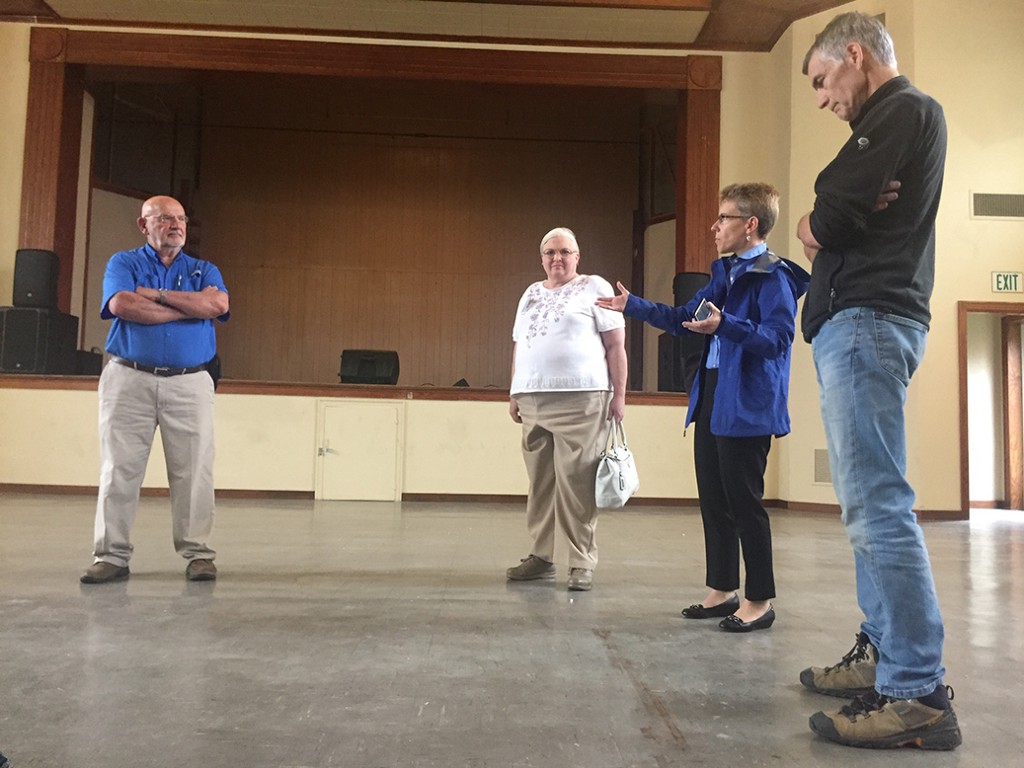By Amy Hartzler, BALLE
“Y’all lost?”
The first words to welcome us to De Witt said so much, offered by an older gentleman as our tour bus full of people pulled up — an uncommon sight in this small rural town. He chuckled, heading to his truck once he made sure we didn’t need directions.
De Witt is not a place you find yourself accidentally. Fifty miles off the interstate, it is similar to, and also different from, many towns in southeast Arkansas, and across this country. Like many other places, it struggled after the closure of local factories. Unlike many others, it is coming back to life with significant investment, hard work, and broad collaboration. A group of deeply connected local leaders have embraced their interdependence, making incredible progress against long odds.
De Witt represents a strong, growing local economy ecosystem: farmers and entrepreneurs, educational institutions and finance institutions, conservationists and faith communities, are all coming together to create solutions to shared challenges.
The Local Economy Accelerator in Arkansas last fall highlighted the local leadership and local investment that is powering De Witt’s revival. The two-day event, led by the Business Alliance of Local Living Economies (BALLE), the Arkansas Community Foundation, and Communities Unlimited, brought together BALLE’s Local Economy Investors Circle members and Arkansas leaders to discover outsized solutions in this small community.

“As a Fellow based in Baltimore I experienced the power of BALLE’s work up close, weaving together efforts across our urban ecosystem,” said Rodney Foxworth, the new executive director of BALLE. “To discover what that looks like in rural places, when foundations and investors come together and resource leaders on the ground, makes me confident that our network can achieve our mission to build local economies that work for all.”
In De Witt camelina has evolved from modest yields in the first years, as farmers experimented with the timing and placement of this over-winter crop. It turns out that camelina thrives on hillsides, land that often can’t be planted with soybeans or other crops.
Planting in November meant seed was sitting in wet fields all winter — a new feature of the cold season in Arkansas, which had been reliably dry in the past. Planting in February provides increasingly productive returns by May, in time for other seed to go into the ground. Camelina yields have increased from 300 bushels/acre two years ago, to 1400 bushels/acre today.
Today Johnny runs The Bull Pen, a restaurant that nourishes 400–600 locals and folks from all over, every day. Right next door is the biodiesel refinery, Delta Bioenergy, which processes camelina and cooking oil.
“If you’ve been in the south for more than ten minutes, you’ll know that we mostly like our food one way — fried. That means lots of cooking oil,” Mayor Relyea noted. Being able to process used cooking oil, along with processing and refining camelina, has allowed for new resources, value and businesses to be created, that solve real local needs.
Collaboration with BALLE Fellow Polonius and Communities Unlimited helped get the whole enterprise up and running.
Nurturing such value chains requires intentional design. In Montana, an early leader in researching camelina as a rotation crop and source of biofuel in the U.S., “camelina hit a dead end because we didn’t lock in the demand side of the value chain,” said Dawn McGee, BALLE board member and Local Economy Investor’s Circle member, from Missoula, MT. “Because De Witt has the city as an anchor customer, you guarantee you’re producing a product someone will pay for.”

During our time together the importance of relationships was emphasized, over and over. The seed processors happily shared about their commitment to working with farmers, and the hours of laborious effort. Local leaders at the community college reinforced that by serving De Witt as a community, the school was fulfilling their mission to students, faculty, staff, and families. The role of organizations like Communities Unlimited, weaving together local leaders for long-term work, pointed to the tangible, positive results made possible because of so many who were “rowing in the same direction,” as several folks said throughout the day.
This work is not quick, and it’s not easy. Long-term changes require long-term commitment, and capital. De Witt is a model of how rural economies can come to life, and grow over time, with leaders working together.











